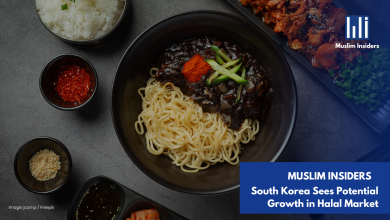
The global halal F&B market is thriving, with a projected value of $1.5 trillion by 2028. This growth refers to a significant demand for halal products. Also, halal and tayyib are now seen as important extensions of the halal concept.
For Muslim consumers, halal and tayyib are not only about what is allowed to be eaten by them. It also involves their own personal values. For it to be halal and tayyib, it must be allowed to be consumed while knowing no living being is harmed and that ethical practices are followed throughout the process.
But what exactly do these terms mean, and why are they important in today’s world?
Halal and Tayyib: Which One is Important?
Halal Means Permissible
In Arabic, halal means “permissible.” This term ensures that the product complies with Islamic law (Shariah). Therefore, when something is considered halal, Muslim consumers are allowed to eat or use the products. This is particularly in areas like food, beverages, cosmetics, personal care and pharmaceuticals.
Products that are halal are free from harmful substances like pork, alcohol or other prohibited substances, in accordance with Islamic law (Shariah). For example, for foods to be halal, especially meat, they should be from halal animals and sources.
This involves a correct slaughtering method. If the animal is not being slaughtered properly, it is deemed dead. Since Muslims are not allowed to eat dead meat, they cannot eat animals that went through improper slaughtering methods.
Tayyib is More Than Just Halal
Tayyib means “pure, wholesome, and good.” It suggests not just what is lawful according to Islamic guidelines but also what is ethical, clean, and good for health and the environment.
The research findings show a clear understanding of the concept of “tayyib” in the Qur’an. It highlights important factors like avoiding impurities (najs), steering clear of doubtful things (syubhah), the link between halal standards and food rules for Bani Israel, and the focus on natural or organic products.
While halal ensures permissibility, tayyib calls for sustainability, fair trade, and humane treatment of animals. This means tayyib includes integrity, health, and kindness that do not involve harming the environment and all living things, like humans and animals.
For instance, raw halal-certified chicken may not necessarily qualify as tayyib if raised in cramped, inhumane conditions. To meet Tayyib standards, businesses must source from suppliers who raise chickens in healthy, comfortable, and stress-free environments.
This also extends to environmental sustainability and avoiding including harmful additives so that products are safe, wholesome, and ethically produced.
Conclusion
For Muslim consumers, halal and tayyib represent more than dietary or lifestyle choices—they embody a spiritual connection to ethical consumption. Brands that embrace these principles tap into a loyal and growing market, one that values products offering integrity, sustainability, and trust.
To thrive, businesses must rise to the challenge, ensuring their offerings truly align with these deeply personal and faith-driven ideals.




